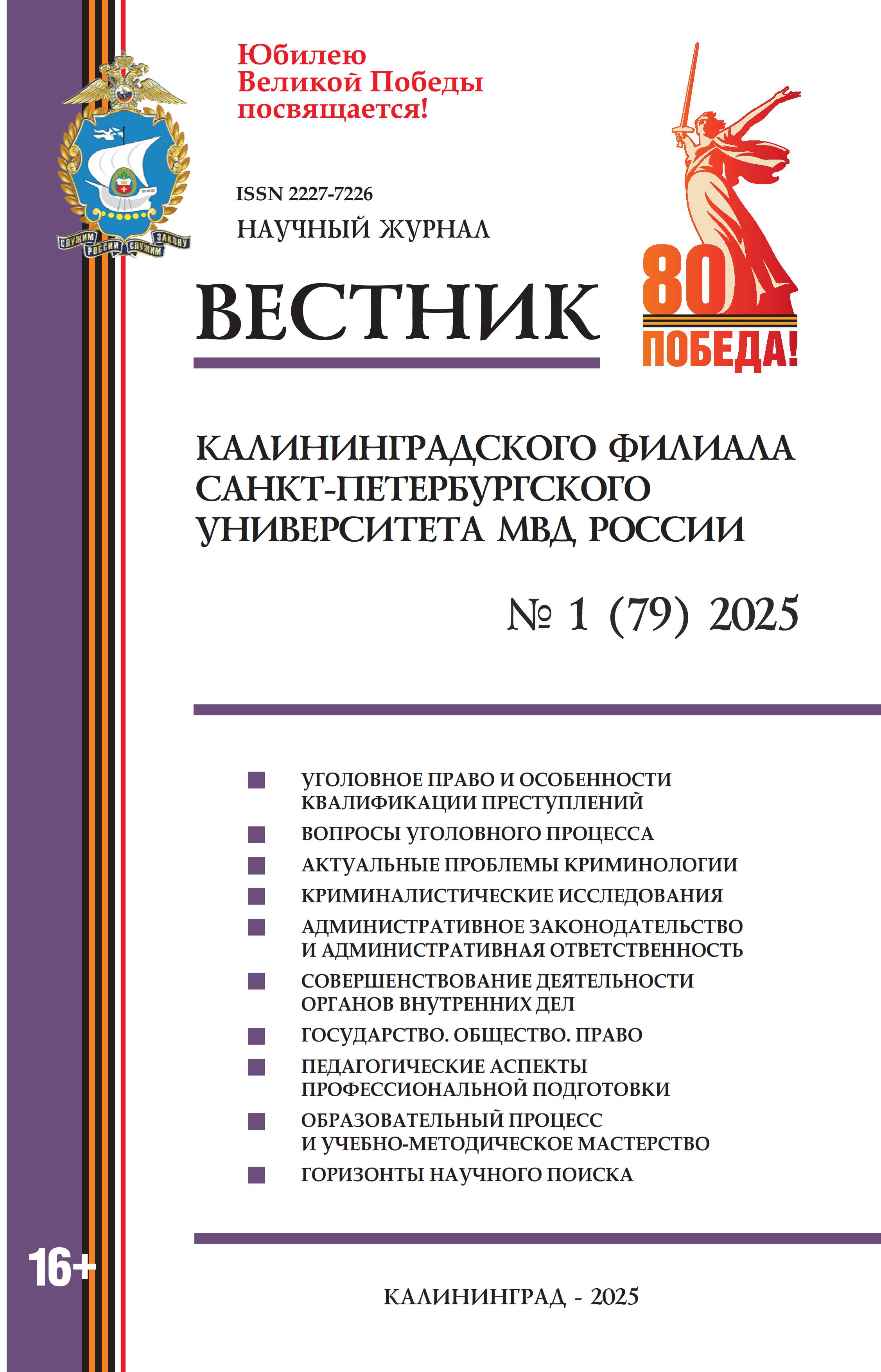Kaliningrad, Kalinigrad, Russian Federation
Introduction. In Russia, property crimes are traditionally committed more often than others. Over the past ten years, the share of thefts in the structure of acquisitive crime has decreased, while the share of fraud has increased signifi cantly. This is due to the development of technology and the increasing availability of information in the modern world. People are increasingly dependent on the Internet and mobile devices, which makes them vulnerable to remote fraud. Methods. The study used the general scientifi c dialectical method of cognition of the surrounding reality, which involves a complete and comprehensive study of phenomena, consideration of the connections and contradictions between them. In addition, the description method, abstraction and generalization, and the statistical method were used. Results. Over the past year, the volume of funds illegally withdrawn from banks has increased in Russia. One of the most common methods of cyber fraud today is the theft of money from virtual cards through duplicate sites. A new type of crime has become the infection of computers with a cryptominer, which led to a decrease in the power of the device, its overheating, and excessive energy consumption. Along with new methods, previously known ones are also used to commit cyber fraud, for example, when criminals try to convince citizens of imaginary assistance to law enforcement agencies, forcing them to hand over cash to the attackers. In 2024, a negative trend emerged related to fraudsters attracting minors to commit illegal transactions using their parents' mobile devices. Counteracting cyber fraud is an important area of work for the country that requires constant attention. The state plays a key role in this process, since not only the safety of individuals and companies, but also national security as a whole depends on its timely response to emerging threats.
Cyberfraud, method of committing a crime, remote form of committing a crime, digitalization, counteraction to cyberfraud, cybersecurity.









